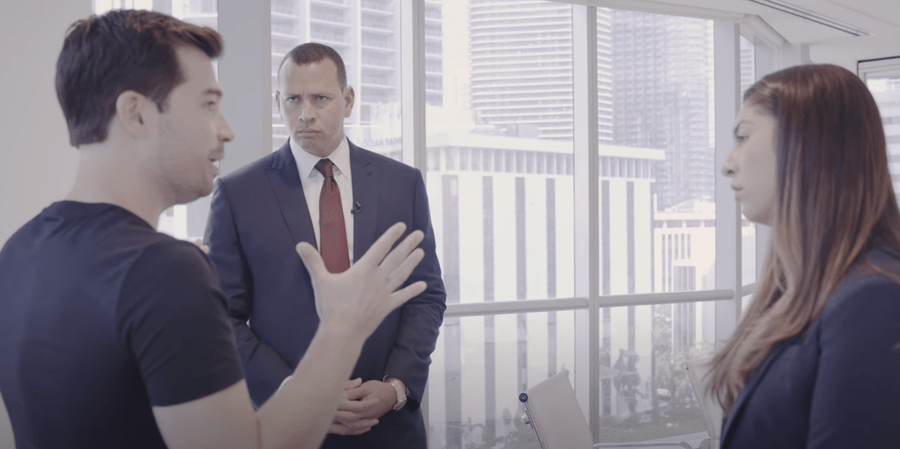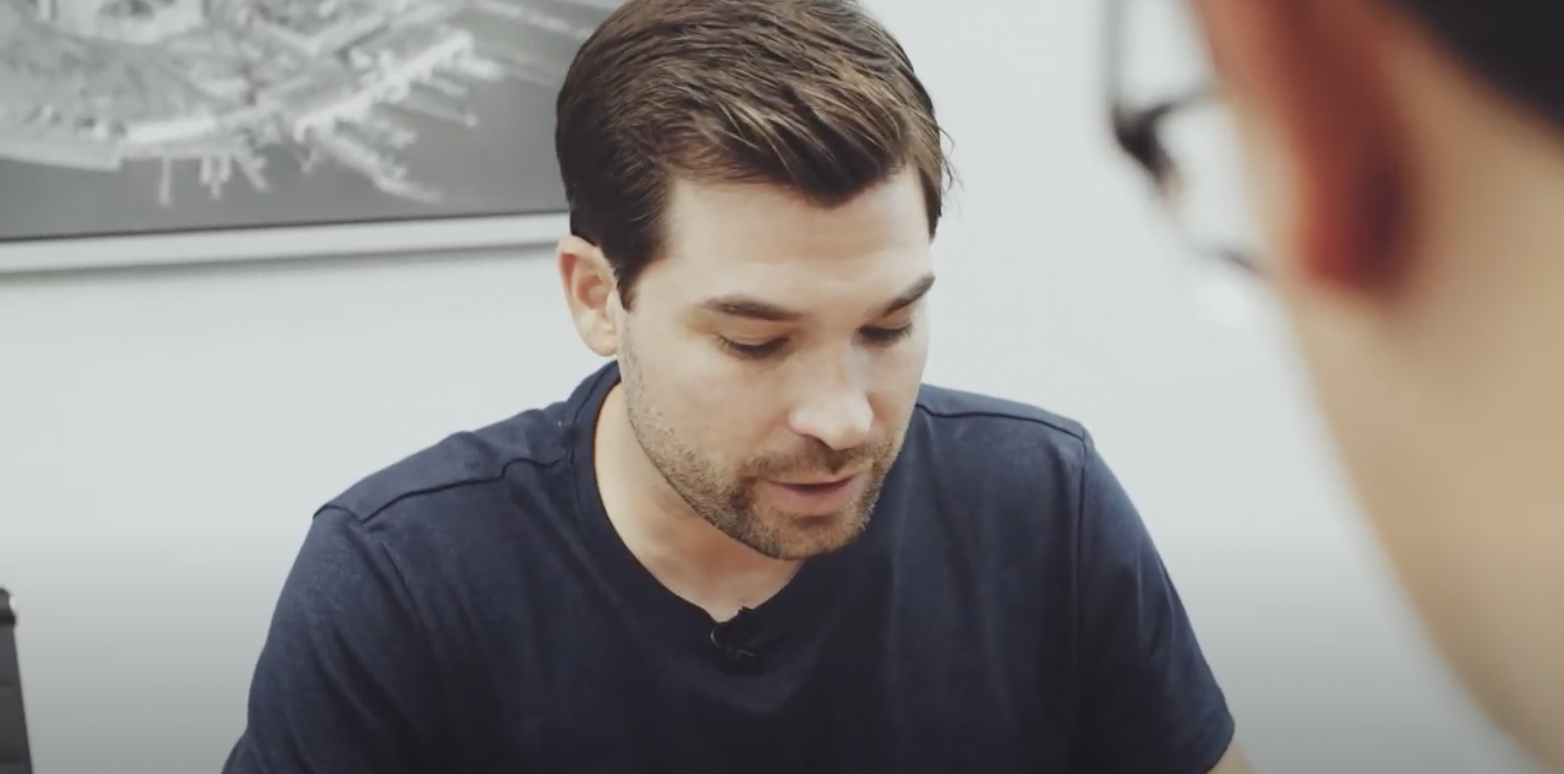7 Business Challenges Every CEO Faces But Doesn’t Admit To
Do you feel like you’re working harder than ever yet your plate is still stacked with endless business challenges?
Believe it or not, you’re probably struggling with the same challenges that most other entrepreneurs are experiencing right now, too.
If you find this hard to believe, it’s because most entrepreneurs won’t tell you that they’re confronting major challenges that, if left unsolved, could create massive repercussions!
To shed some light, I’m sharing 7 of the biggest and most pervasive challenges almost every CEO faces but doesn’t admit to facing.
Even BETTER, I’m shedding light on how to simply overcome these challenges to achieve bigger, better business outcomes in less time.
Every entrepreneur faces challenges and, unfortunately, most of them will allow the challenges to get the best of them. Will you?
CEOs Face More Challenges Now Than Ever Before
It’s easier now than ever to start a new business, yet sustaining a business is harder than ever because there are more day-to-day challenges than ever before.
Why are there more day-to-day challenges? I'm breaking it down.
We Inflict Most Challenges on Ourselves
I hate to say it, but the reason why there are more challenges now than ever before is that CEOs inflect more challenges on THEMSELVES than ever!
We are creating most of the challenges we face because we overthink A LOT these days.
The reason we overthink so much: Our brains are running on a wild sensory overload.
At all hours of the day, our brains are in a total overload from social media, emails, team members, our customer base, the family, and so on.
Unfortunately, our brains aren’t equipped to handle this kind of sensory overload and we don’t do anything to stop it. The consequence of this is overthinking.
Instead of taking a step back and removing ourselves from overload, we feed into it. We ALLOW it to mess with our heads and create challenges that weren’t there before.
For example, you might have a new business plan, but then you go and compare your business plan to somebody else’s from the internet. Suddenly, feel like yours isn’t good enough and revert to square one.
This challenge could have been avoided had you taken a step back, assessed what was really going on, and then chosen not to overthink instead of making it a problem.
Bottom line: We create most of the challenges we experience because we allow ourselves to overthink to the max. No, it’s not your new employees, customers, or competitors inflicting problems on you, it’s you!
-Mar-16-2022-07-27-12-89-PM.jpg?width=900&name=1%20(1)-Mar-16-2022-07-27-12-89-PM.jpg)
We Have an Accountability Crisis
Here’s the worst part of this all: We inflict challenges on ourselves and then don’t take accountability for those challenges.
Rather than owning up to the situations we’ve created from our own overthinking, we push them off onto others.
Unfortunately, it's extremely disempowering to not hold yourself accountable.
Think of it like this- Whenever you say, ‘It’s their fault, not mine!’ you’re saying that you’re a victim at the mercy of somebody else. You’re saying that there’s nothing you can do to change the situation.
What’s even worse is that most people want to push accountability of their challenges onto others but then take full accountability for their wins!
You can't be a victim of your challenges and make excuses for yourself while also taking credit for your wins.
Without accountability, you're saying that there's nothing you can do to fix your challenges and that they'll ultimately overcome you.
99% of Solutions to Challenges Are Simple
Not only do we overthink ourselves into problems, but we also overthink the solutions to the problems.
The truth is that 99% of the solutions to your challenges, including the ones below, have relatively simple, straightforward solutions.
No, you don't need to jump through hoops to overcome your challenges, you just need to stop overthinking the solutions!
Unfortunately, most business people you meet, online business influencers and gurus, and even business schools try to convince CEOs like you that solutions are complicated.
Instead of telling you the truth, they tell you that challenges require complex solutions.
They do this because they want you to believe that you need them and their solutions to solve your problems. AKA, they do this because they want your money!
Bottom line: We create most of our challenges because we overthink to the max. Then, we overthink the solution to those challenges, reducing the odds that they ever get resolved.
Here Are the Top Business Challenges CEOs Face But Don’t Admit To
Here are the biggest and most common challenges both large and small business owners alike know all too well AND how to simply solve them. Each of these challenges is mostly a result of overthinking.
Keep in mind that while these challenges might feel insurmountable, their solutions are likely rather simple.
Instead of allowing yourself to overthink any longer, confront the challenges and apply the simple solutions. Your success depends on it!

1. Predictable Business Growth
First off, perhaps the most common business challenge every CEO faces is predictable, sustainable, and long-term business growth.
Whether it’s generating more new customers week-to-week, developing new products regularly, or investing in a new office space, most CEOs fail to hit their marks.
Instead of growing, most CEOs experience regular plateaus, grow only in the short-term, or even experience periods of negative growth.
The reason why most CEOs struggle with growth is that they see it as complex. Instead of seeing business growth as a simple matter of making more sales in less time, they believe it’s more complicated than that.
As a result, they focus on anything and everything that won’t help them grow.
For example, instead of putting sales growth above all else, they’ll focus more on the marketing strategy or business model.
That said, the key to achieving consistent, long-term business growth is focusing 90% of your energy on sales and 10% on everything else.
Specifically, focusing on developing a:
- Sales strategy
- Repeatable sales process
- Go-to sales pitch
Most CEOs won’t talk about this challenge because it really hits home for them. At the end of the day, their business is a reflection of them, so not being able to grow it feels like a personal hit.
The good news though is that growing a business is a simple matter of making more sales in less time to increase cash flow. That's it!
2. A Feeling of Purposeless-ness
Most business owners start their own business because it fulfils a special purpose of theirs.
Unfortunately, once they’ve established their business, many CEOs start to lose that sense of purpose. They feel as if that little flame of enthusiasm is getting smaller.
As a result, they begin to question why they’re working so hard. They think to themselves that they could lose the stress of being a business owner by quitting and going back to 9 to 5.
The feeling of purposelessness usually stems from getting caught in the business weeds.
You know that you’re caught in the business weeds when you show up to work every day and instead of focusing on the big-ticket business items, all you do is put out fires.
For example, one employee pulls you to help solve their problems while another is nagging at you to help solve their problem. By the end of the day, you realize that instead of making progress, all you did was put out fires.
That said if you're starting to lose that sense of purpose, ask yourself if you’re currently stuck in the weeds.
If you're stuck in the weeds and resultantly losing your passion for business, prioritize leadership, outsourcing if necessary, and communication with your team.
The longer a CEO is stuck in the weeks, the longer that sense of purposelessness lingers and the more they suffer.
3. Getting Ghosted or Treated Terribly by Potential Customers
Does anything feel more like a slap in the face than catering to a potential customer’s needs only to have them treat you terribly?
After putting in so much work to ensure that the customer experience is positive, being reciprocated with terrible treatment sometimes makes CEOs want to quit.
In fact, a recent survey revealed that ghosting is a major trigger for poor mental health amongst salespeople.
That said, if you’re accustomed to terrible customer treatment, it doesn't need to stay that way. The truth is that you can almost 100% prevent being treated terribly by your prospects.
The key to not being treated terribly is taking control of the sales process. CEOs and salespeople who take control don't get treated poorly.
On the other hand, CEOs and sales professionals who don't take control get ghosted, objected to, or have to sit around for months waiting to even get a 'thanks but no thanks'.
Keys to staying in control of the sales process include:
- NEVER send a free initial sales proposal;
- Asking more questions instead of talking; and
- Speeding up the entire sales process.
Business owners and salespeople don’t need to let potential customers take them for a ride!
As long as they take control of the process, it's unlikely to happen.
4. Striking Work-Life Balance
Every CEO knows the feeling of getting into their daily workflow or sitting down at night only to have their phone buzz a million times and feel as if they're being pulled in several directions at once.
So goes the never-ending work-life balance challenge!
Here’s the thing- Business IS personal and personal IS business.
You’re never going to 100% block off your personal life from your business life.
Not only that but to have your personal life have some influence over your business life and vice versa isn’t necessarily a bad thing.
Therefore, don’t try to completely isolate your business and personal lives from one another. Instead, strike a balance with time blocking.
Time blocking is when you schedule or block off very specific hours of the day for different activities.
For example, from 6:00 am to 6:59 am you strictly exercise. Then you get ready from 7:00 am to 7:59 am. From 8:00 am to 8:59 am you answer your email.
The moment the hour changes is the moment your focus changes!
The idea is to get super strict with your schedule. Rather than letting your schedule and other people own your time, YOU own your time.
-1.jpg?width=900&name=1%20(1)-1.jpg)
5. Implementing Changes
Most people are married to their ideas, and CEOs are no exception.
For example, a CEO might see that their current marketing campaign isn’t performing well, but they are so married to it that the thought of changing it feels like a personal loss.
Moreover, every business needs changes every once in a while, yet most CEOs struggle to make changes because making changes feels like a personal punch to the gut.
It makes sense why CEOs are so resistant to change: Change is the opposite of comfort, and human nature is constantly striving for comfort!
That said, overcoming the ego to make necessary changes is a matter of changing the way you perceive change.
The goal is to start seeing change as a means to reaching your desired business outcome, rather than a personal loss.
For example, rather than thinking to yourself, ‘Changing our business plans is going to uproot our current workflow’ think, ‘Changing our business plans is a means to accomplishing this goal’.
The idea is to consistently tell yourself that change is a personal benefit until the thought becomes automatic.
Once you automatically start thinking of change as the vehicle for helping you manifest your desired outcomes, making changes will feel less like a personal loss and more like a personal gain.
6. Attracting and Retaining Top Talent
Are you like most CEOs who find finding good employees to be nothing short of a hunt for buried treasure?
Attracting, hiring, and retaining top talent is a widespread challenge with potentially major repercussions if left unresolved.
Part of the reason why this is such a challenge in the first place is that CEOs don’t even know what they should be looking for in an employee.
In some cases, they have a vague profile of their ideal employee, but it rarely helps them recruit the kind of talent they need.
That said, the key to attracting and retaining top talent is to know who your ideal employee is, and the most ideal employees are the most coachable ones.
When it comes down to it, coachability is of the utmost importance!
Contrary to popular belief, hiring the most experienced employee you can find might backfire. It tends to backfire when the employee is so experienced that, instead of adopting your processes, they bring their own in. When this happens, it's as if you're an outsider to your own business.
Bottom line: If you want to find the kinds of employees who will grow with your business for the long haul (and reduce headaches in the process), look for the most coachable ones.
7. Fear, Anxiety, and More Anxiety
Finally, most entrepreneurs have experienced being in a near-constant state of fear and anxiety.
Specifically, fear and anxiety related to:
- Potentially failing
- Being judged by others
- Letting others down
Being in a crippling state of fear and anxiety has repercussions beyond just making CEOs feel terrible.
Fear and anxiety are also related to poor decision-making and a low confidence energy that drives potential customers away.
Fortunately and unfortunately, the only way to reduce fear and anxiety is to take action. By taking action, fear and anxiety begin to dissipate.
The moment you take action despite fear and anxiety is the moment your body kicks into survival mode. Once in survival mode, the body has more gas to persist through challenges than it did before!
Going from a state of fear to a state of survival mode by taking action is better known as energy transmutation.
Despite what you see on TV or read about in books, EVERY CEO has felt business-related fear and anxiety before, although many won’t admit it.
The primary difference between the most successful CEOs and the rest is that successful CEOs have become accustomed to taking action despite fear while others haven't!
Final Thoughts on Biggest Challenges CEOs Face But Don’t Admit To
Why would you think that you’re the only CEO on earth struggling with these challenges?
The hard truth is that you’re not alone- I’ve struggled with all of these challenges before!
That said, you don’t need to let them overcome you.
Instead, stop allowing yourself to overthink, take accountability, and then apply simple solutions. Your business and personal success depend on it!
You May Also Like
These Related Articles

6 Business Growth Challenges Every CEO Must Overcome

Addressing the Top Challenges of Your Sales Pipeline




